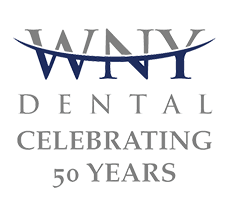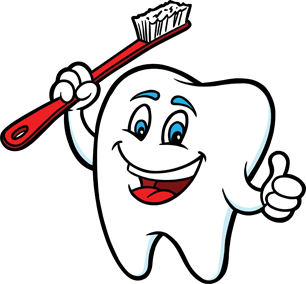Dental Services Offered in Rochester, NY
We offer a range of affordable, high quality dental services—from routine teeth cleanings to complex procedures. Our trusted and knowledgeable dentists and staff are trained in the newest techniques and use the latest technologies to deliver the care you need in a comfortable environment.
Our practices offer many different types of dental services, which means you and your family can be treated without being referred to outside specialists, for the most part. And since Western New York Dental Group is a community-based dental group, we have many convenient locations and many daytime hours as well as weekend hours to accommodate you and your family.
: :Oral Conscious Sedation
Oral Conscious Sedation
Conscious Sedation is defined as a minimally reduced level of consciousness that retains the patient's ability to breath independently and respond to questions or follow instructions. Sedation Dentistry, sometimes called Relaxation Dentistry, is one way that a dentist can manage pain and anxiety during dental appointments. Unlike general anesthesia where a patient is completely unconscious, the patient can interact with the dentist, but typically has no memory of the procedure.
Are you a candidate for Oral Conscious Sedation? Ask yourself these questions:
- Do you experience extreme anxiety or fear when you're facing a dental appointment?
- Do you gag easily?
- Have you put off or canceled a dental appointment due to anxiety?
- Have you had trouble in the past getting numb prior to receiving dental care?
- Are you facing multiple dental procedures and worry that you won't be able to tolerate them?
If you answered yes to any of these questions, Oral Conscious Sedation might be right for you.
Oral sedation can be used for anything including filling a cavity, performing root canals or surgery to cosmetic dental services. You can regain your oral health or address painful conditions with greater ease.
Wisdom Teeth Extraction
Wisdom teeth, or third molars, are the last teeth to erupt within the mouth, usually in a person’s late teens or twenties. When they align properly and gum tissue is healthy, wisdom teeth do not have to be removed. Unfortunately, this does not generally happen. The extraction of wisdom teeth is necessary when they are prevented from properly erupting within the mouth. They may grow sideways, partially emerge from the gum and even remain trapped beneath the gum and bone. Impacted teeth can take many positions in the bone as they attempt to find a pathway that will allow them to successfully erupt. Your dentist can determine if you need your wisdom teeth removed from the x-rays taken during your usual hygiene cleanings.
Learn more :Extractions
The surgical removal of teeth is a common procedure in our office. You and your doctor may determine that you need a tooth extraction for any number of reasons. Some teeth are extracted because they are severely decayed; others may have advanced gum disease, or have broken in a way that cannot be repaired. Other teeth may need removal because they are poorly positioned in the mouth or in preparation for orthodontic treatment.
The removal of a single tooth can lead to problems related to your chewing ability, problems with your jaw joint, and shifting teeth, which can have a major impact on your dental health.
To avoid these complications, in most cases, your doctor will discuss alternatives to extractions as well as replacement options for the extracted tooth such as dental implants.
Learn more :
Dental Implants
Dental implants are changing the way people live and are often the best option for people who have experienced tooth loss. They are the closest thing to natural teeth that modern dental technology has to offer. They are a desirable alternative to dentures as these are “permanent teeth” that look, feel and function similar to natural teeth. Dental implants are tiny titanium posts that are surgically placed into the jawbone where teeth are missing. The posts act as tooth root substitutes and, within three to six months, the bone bonds with the titanium to create a strong foundation for artificial teeth. If you are considering dental implants, give us a call and we will thoroughly examine your mouth and dental records to determine if they are a good option.
Learn more :Oral Surgery
Oral surgeons care for patients with more serious problems, such as wisdom teeth, facial pain and misaligned jaws. They specialize in procedures involving TMJ disorders, orthognathic surgery and wisdom teeth removal.
Learn more :General Oral Surgery
Western New York Dental Group has dentists on staff who provide care related to wisdom teeth extractions and dental implants. For more complex oral surgery cases and conditions, our general dentists may refer you to our associates at Advanced Dental Specialists www.advanceddentalspecialists.com. Just like Western New York Dental Group, ADS is nationally recognized for their quality, as evidenced by their AAAHC accreditation.
Learn more :Anesthesia
Dentistry has advanced to the point in which pain is almost a thing of the past. Powerful pain-killing medications known as anesthetics not only help a patient avoid discomfort during a procedure, but post-operatively as well. Some patients, especially children, may require higher doses of anesthetic than others.
Learn more :Endodontic/Root Canal Therapy
Root canals are typically needed when an untreated cavity progresses rapidly and spreads to the pulp of the tooth. The tooth pulp is made up of blood vessels, connective tissues and nerves. Once the bacteria of decay have reached the tooth pulp, it can be extremely painful. If your dentist determines that a root canal is the best solution for you, the procedure can typically be done with minimal discomfort and often keeps you from losing the tooth.
Learn more :After Hours Emergency
Dental emergencies can happen at all hours of the day and night. In order to keep every tooth we care for safe, we offer some guidelines on what to do in every situation. And if that isn’t enough, we always have a dentist on call seven days a week to handle any after-hour emergencies for our current patients.
Learn more



























